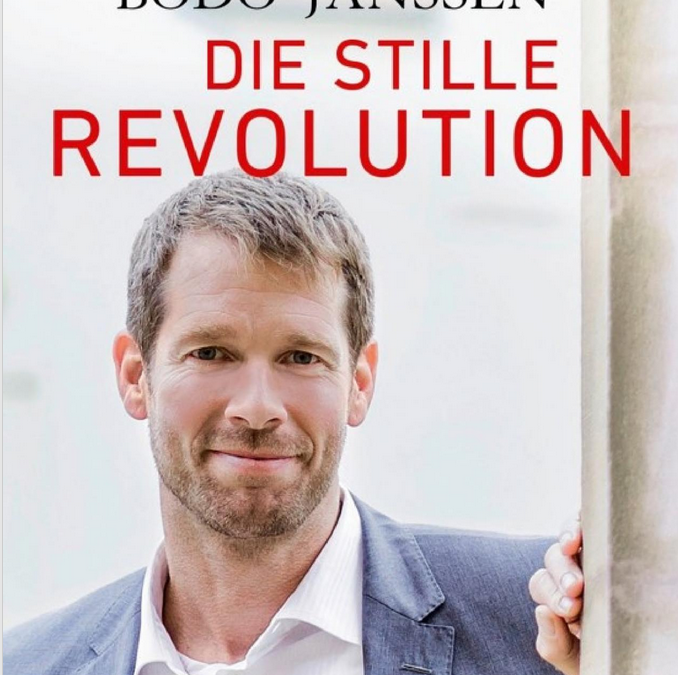In his book “The Quiet Revolution”, Bodo Janssen describes his journey from a complacent manager to a meaning-oriented leader in a unique blend of biography and non-fiction. The book’s first part is intensively devoted to Janssen’s biography, starting with his experiences as a model and successful athlete and ending with the deep cuts in his life, such as his kidnapping and his father’s death.
In the book’s second part, Janssen describes in detail how he is implementing a cultural change in his company. After a devastating evaluation by his employees, he realises that a company’s success depends on the people involved in it. With this process of realisation, he develops new forms of corporate management that aim to change the relationship between the employees in the company.
Janssen attaches great importance to a shared mission statement that he and his employees actively shape. He encourages his employees to get personally involved and to develop and implement a shared vision for the company. Through measures such as a Kilimanjaro expedition for his trainees, he promotes team spirit and strengthens togetherness.
The social commitment of Janssen’s employees is particularly remarkable. For example, they support a fisherman after a storm disaster by helping him to restore his livelihood.
In addition, they are jointly committed to a school project in Rwanda, where they are driving forward the construction of a school. These examples clearly show that Janssen’s approach to cultural change is not limited to the company but also positively impacts the social environment.
An outstanding example of Janssen’s courage to dare something new is the Seehotel project. He hands over the management of the hotel to a student and then makes it available to a university for educational purposes. Through such innovative measures, Janssen not only changes the corporate culture but also positively influences the entire company and its employees.
Janssen’s story impressively shows that a change in one’s thinking and actions is possible and that leadership should be based on humanity, loyalty and appreciation.
The book “The Quiet Revolution” is an optimal holiday read for leaders and anyone looking for inspiration, insight and a vision of happy people. It offers valuable insights into the importance of self-reflection, personal happiness and leading people.
Waltraud Ferz-Steinbauer has read and reviewed this book for you.


Recent Comments